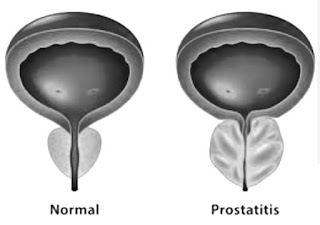Prostate cancer is a type of cancer that develops in the
prostate gland, which is a small walnut-sized gland located below the bladder
in men. It is one of the most common cancers in men.
Symptoms of Prostate Cancer:
Urinary Problems: Frequent urination, weak urine flow,
difficulty starting or stopping urine, blood in the urine, or painful
urination.
Erectile Dysfunction: Difficulty in achieving or maintaining
an erection.
Blood in Semen: Discoloration or blood in semen.
Pain and Discomfort: Pelvic pain, discomfort in the pelvic
area, lower back pain, or pain in the hips or thighs.
However, it's important to note that early-stage prostate
cancer may not cause any symptoms, which is why regular screening is crucial
for early detection.
Surgery: Surgical removal of the prostate gland, known as a radical prostatectomy, is a common treatment option. It can be done through open surgery or minimally invasive techniques like laparoscopic or robotic-assisted surgery.
Radiation Therapy: High-energy radiation is used to kill cancer cells or inhibit their growth. It can be delivered externally (external beam radiation therapy) or internally (brachytherapy), where radioactive seeds are implanted directly into the prostate.
Hormone Therapy: Prostate cancer cells often rely on male
hormones like testosterone for growth. Hormone therapy aims to block or reduce
the production of these hormones or interfere with their actions to slow down
the cancer's growth.
Chemotherapy: It involves the use of drugs to kill cancer cells or prevent their division. Chemotherapy is typically used in advanced cases when cancer has spread beyond the prostate.
Immunotherapy: This treatment option stimulates the body's
immune system to recognize and attack cancer cells. It is a newer approach that
shows promise in certain cases of advanced prostate cancer.
The choice of treatment depends on the individual's specific situation and should be discussed with a healthcare professional who can consider all the factors and provide personalized recommendations





0 Comments